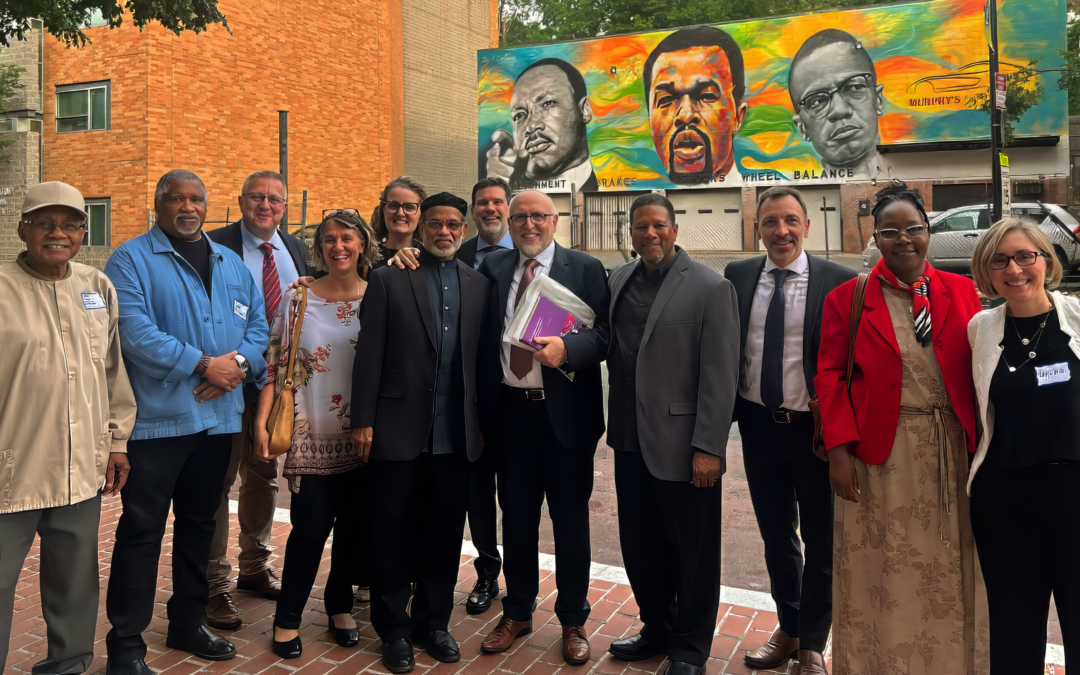

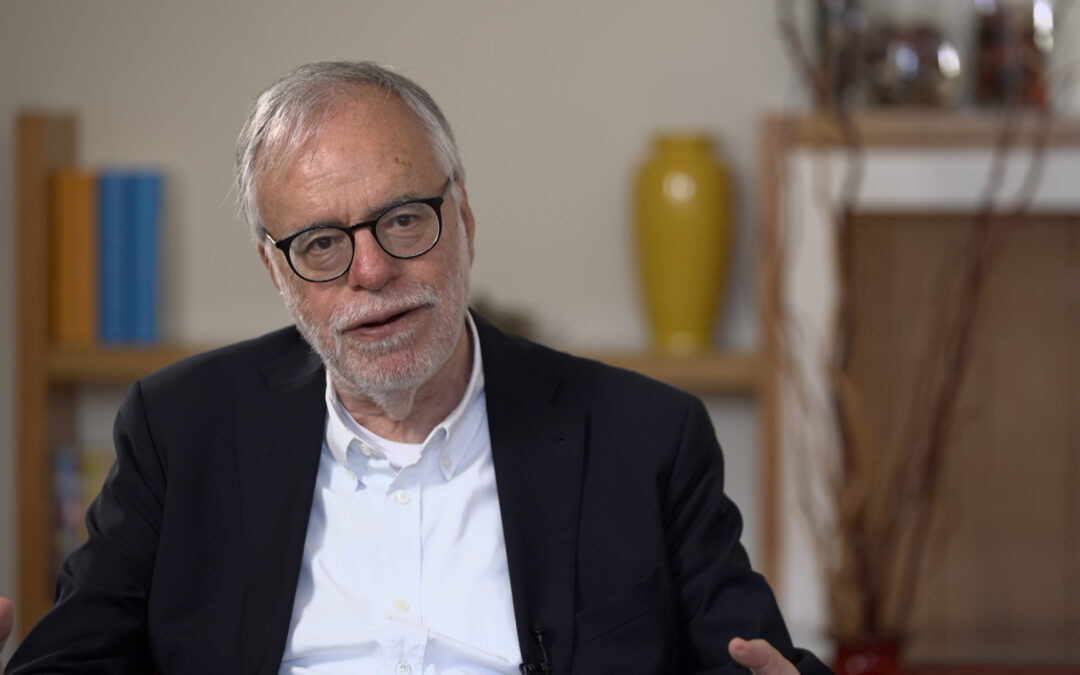
Andrea Riccardi: A hope that does not disappoint
The annual meeting of the Moderators of Lay Associations, Ecclesial Movements and New Communities took place in the Vatican from the 4th to 6th of June 2025. This event, held on the eve of the Jubilee of the Movements, gathered the various ecclesial realities in St. Peter’s Square with Pope Leo XIV. The Focolare Movement was represented. At a time when the world is deeply divided and even polarised, the participants shared a common desire to unite their charisms and contribute to the Church’s journey toward greater unity. Below are some interviews with presidents and founders of movements or communities who highlight the urgent need to feel part of one family going along this journey. They also express their gratitude that they can work together to increase a sense of hope in the world.
Let’s listen to Andrea Riccardi, founder of the Saint Egidio Community.
Activate subtitles and select language
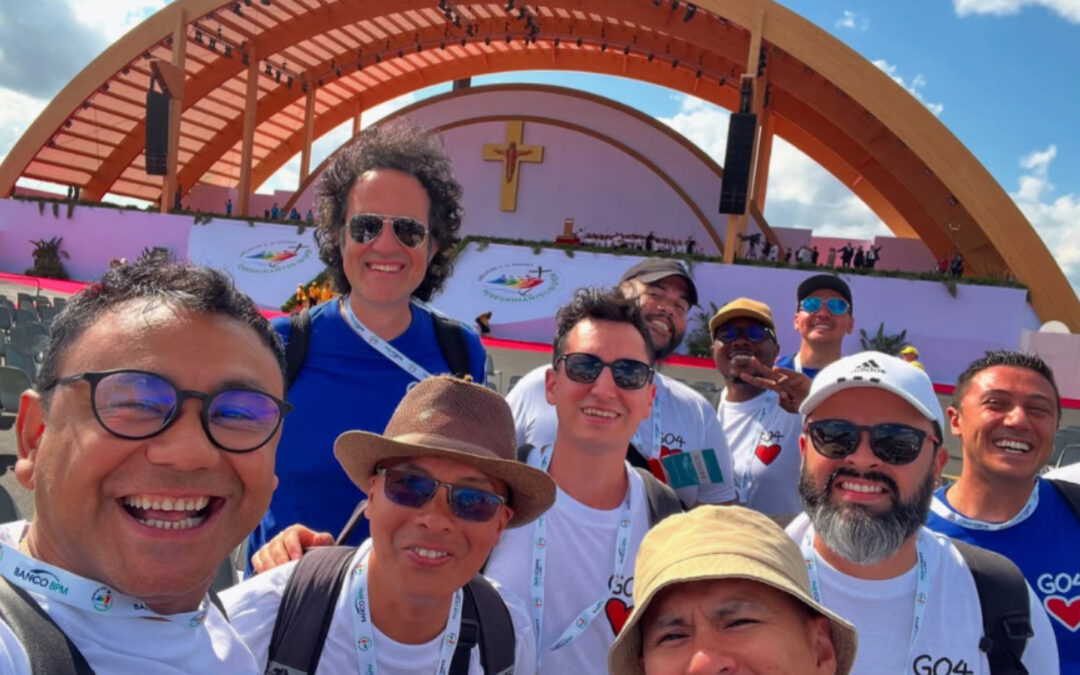
“The Best Spirituals”, new album by Gen Rosso
Gen Rosso, one of the Focolare Movement’s international bands, has announced the release of a new album entitled “The Best Spirituals”. This collection marks a significant moment in their career, bringing together live versions of some of the most famous songs from the band’s spiritual repertoire, recorded during tours from 2020-2025. The album stands out both for the selection of songs and for the new arrangements and reinterpretations which give a contemporary voice to timeless melodies.
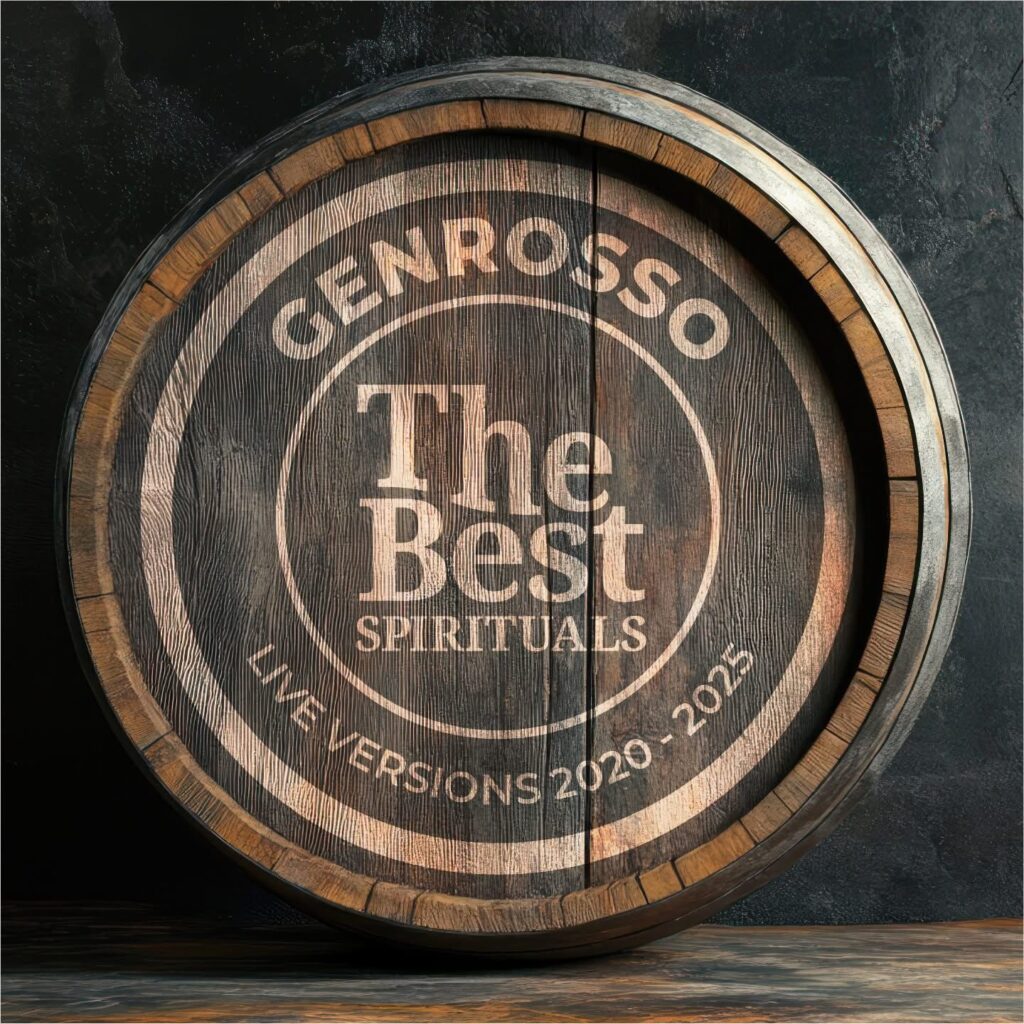
Each track has been carefully reinterpreted to engage today’s listeners while preserving the heart of the “Spirituals” tradition. The live recordings capture the energy of the stage, the emotion of the moment and the deep connection between the artists and the audience, inviting listeners into an experience of hope and closeness.
“Seeing these songs continue to live and generate life even today is something wonderful and very important, a legacy that must be valued and preserved over time,” says Band. This desire to keep the tradition alive is reflected in Gen Rosso’s concerts, where audiences are encouraged to sing along and participate, transforming each performance into a shared celebration of joy. “The Best Spirituals” is not just an album; it is an invitation to rediscover time and time again, the beauty and relevance of these powerful messages. With rich harmonies, vibrant arrangements, and renewed rhythms, Gen Rosso continues to further its passion for music, paying tribute to a musical and cultural heritage that transcends time and generations.
The release of this album is an unmissable opportunity for fans of Gen Rosso music and for anyone who believes in the power of art as a force for unity and change.
Gen Rosso invites everyone to join them on this particular musical journey, rediscovering together the timeless value of the “Spirituals” and letting themselves be carried away by the emotions that only music and history together will be able to evoke. The album is available from 11 August on all digital platforms.
Lorenzo Russo
Photo: Gen Rosso at the Youth Jubilee in Tor Vergata (Rome) on August 2, 2025 (© Gen Rosso)
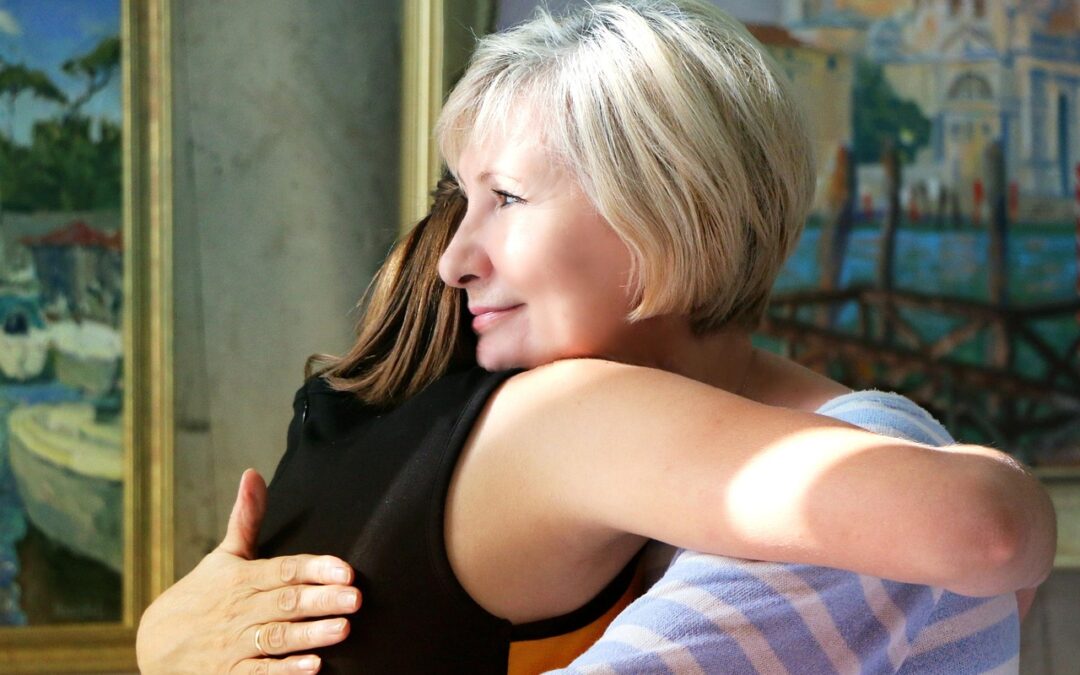
Living the Gospel: with treasure in our hearts
The dissatisfied mother-in-law
My mother-in-law was dissatisfied with the work carried out by the worker her son had organised for her. When we pointed out that she was never happy with anything, she reacted strongly. Later, at dinner, she was still sulking, and when I tried to downplay the incident, she flew off the handle, reproaching me for things I really didn’t feel guilty about at all.
She even got up from the table and went to take refuge in her room. Ah, if only everyone had stayed at home! But inside me, the voice of charity which covers faults and weaknesses like a cloak, prompted me to go to her. I found her in tears. When I asked for forgiveness, she also blamed her son. I felt I had no choice but to leave. I felt I had done enough… but then the same voice as before suggested I try again. After clearing the table, I went back to her to convince her that I was truly sorry, and I hugged her as I would have hugged my own mother. I only left her once the tension had eased and I saw her doze off. I thanked God, and the next day my greeting with a smile removed all trace of embarrassment from my mother-in-law’s face.
Maria Luisa – Italy
In hospital
I was admitted to the hospital in Ribeirão Preto for a nose operation. It wasn’t the first time, because I have a rare disease and need frequent treatment. That’s why I don’t like hospitals, and I was really scared but I did everything out of love for Jesus.
For example, I drank milk with cream which I don’t like at all; on the day of the operation, I put on the hospital clothes without complaining; I didn’t eat lunch so I could have the anaesthetic; I waited with love for four hours because there was a delay with my operation and tried to love the other children who had also been admitted to hospital. After the operation, I waited several more hours for the doctor to call me for a check-up.
I was already hungry, tired and nervous, so I knocked over a chair and grumbled. But I immediately remembered what I had promised Jesus and repented. Shortly afterwards, the door opened. It was the doctor calling me.
Paulinha, 7 years old – Brazil
Reciprocity
One morning, I heard the doorbell ring: the person at the door introduced herself as B., the tenant who was living in the flat below me and has Alzheimer’s. She asked me to let her in because she had accidentally locked herself out of her flat while her husband was away. I opened the door and invited her to stay with me for a while until he returned home.
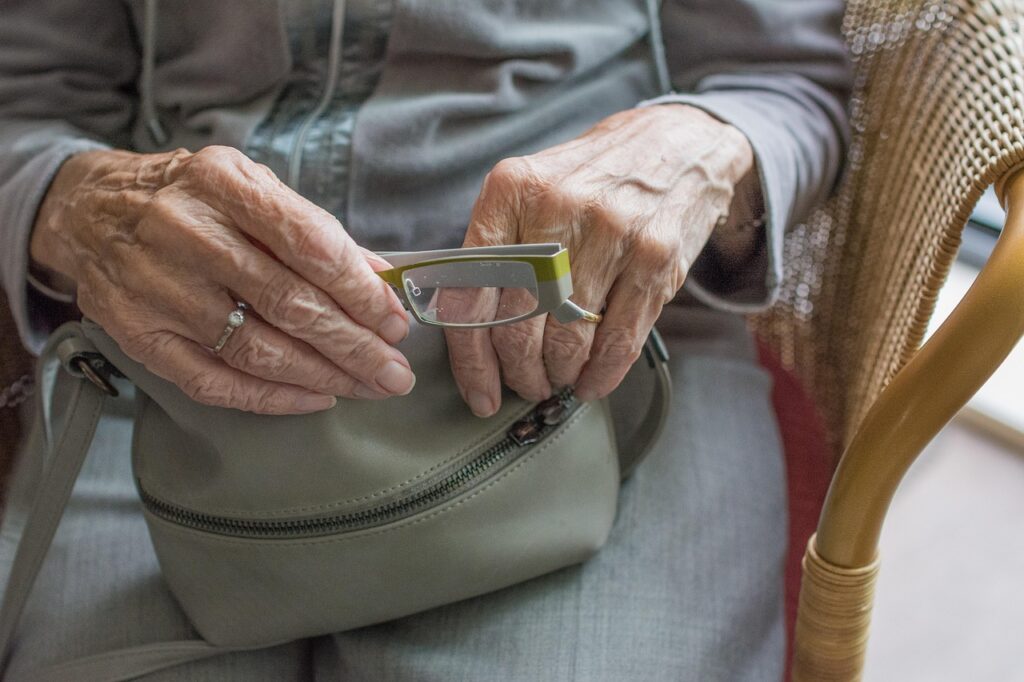
I could see she was sad and confused (sometimes she is aware of her condition). So as not to make her feel bad, I pointed out that this kind of unexpected thing can happen to anyone, through carelessness. We chatted for a while until she remembered that she was locked out and became anxious again.
Since I didn’t feel like leaving her in that state, even though I’m in a wheelchair, I went with her by lift to the floor below to calm her down.
But first, B. also showed herself to be a neighbour to me by taking the trouble to place a mat in front of my front door so that it wouldn’t close. In that way I was able to keep her company until her husband arrived.
M. – Italy
(taken from Il Vangelo del Giorno, Città Nuova, year X– no. 1 July-August 2025)
Foto: © Pixabay
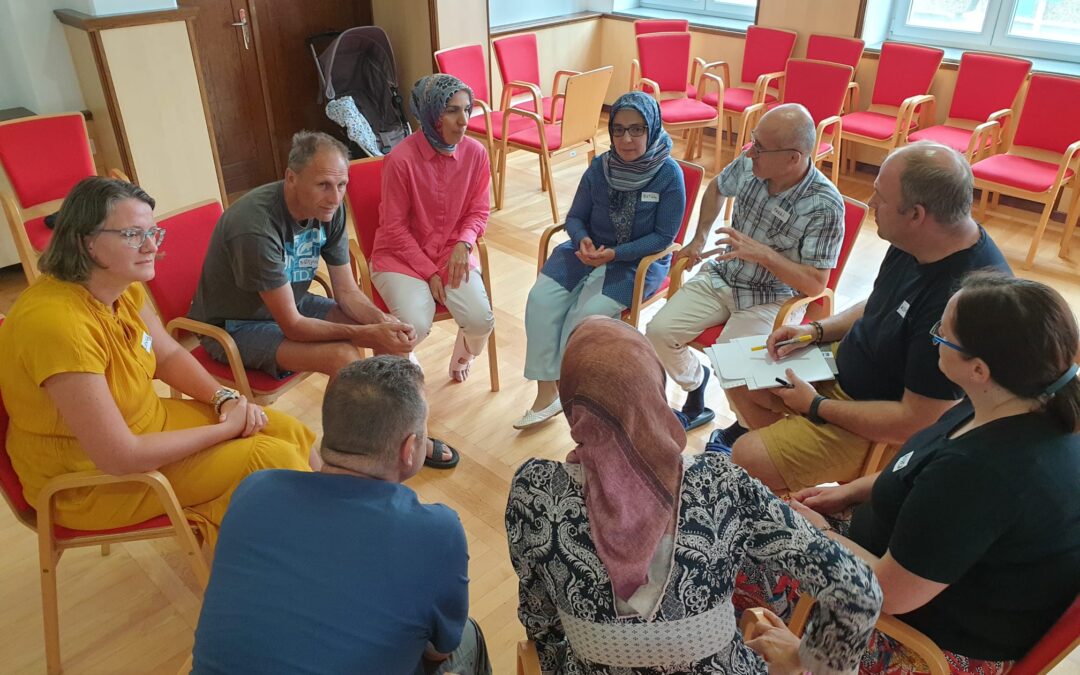
A Network of Families: Dialogue Creates Community
For more than thirteen years, we have been involved in real dialogue with a group of Turkish Muslim families living in our city, Ljubljana (Slovenia). It all started quite by chance. I worked as a dentist and one of the first Turkish families to arrive in Slovenia became my patients. From that first meeting, a deep bond grew, which over time extended to other families in the same community. After the failed coup in Turkey in 2016, many people were accused of belonging to a hostile movement and were forced to flee, finding refuge in our country. Since then, the number of families with which we started interacting grew rapidly, reaching around 50 people in just a few months.
We soon realized that it was not a simple cultural exchange but that this bond developed into a relationship of real mutual help: we helped them to learn our language, to handle administrative paperwork, to enrol their children in school and with all the support required for the needs of daily life. In short, a friendship that has gradually become a deep dialogue, including about values and spirituality.
Over time, we had the opportunity to introduce them to the Focolare Movement and its ideal of a united world. This led to discovering of many common points between the Focolare charism and their spirituality.
One of the most significant aspects of this journey was taking part in each other’s religious celebrations. We attended iftar dinners during Ramadan, while Muslim families showed interest in the Christian celebrations. For four consecutive years, we celebrated Christmas together. The Muslim families were initially surprised by the spiritual depth of this occasion as, influenced by Western media, they had seen it mainly as a consumer event.
Video in original language – Turn on subtitles and pick the language you want
From this desire to further deepen this dialogue, the Pop the Bubbles project was born in collaboration with the Association for Intercultural Dialogue and Social Academy, where I work. The aim was to overcome prejudices and barriers between communities, encouraging meeting between Turkish and Slovenian families. The project involved a group of families for a whole year, during which we worked together to identify common values between the two cultures. At the end of this journey, six fundamental values emerged: family, active citizenship, intercultural dialogue, democracy, freedom and inclusion. To conclude the project, we organized two residential camps, one of three days and one of five, in which 73 people participated. In addition to cultural exchange meetings, the project also led to concrete solidarity initiatives, such as helping Ukrainian refugees. This has shown that working together towards a common goal can strengthen the bonds between different communities. In addition, in recent years, I started working in an NGO (Social Academy) that cares for young people and some Turkish families asked me to help look after their teenage children as well, passing on to them those common values we had discovered together. This step was very significant, because it demonstrated the trust that had been built between our communities.
At the same time, an innovative project was born: the creation of an application to promote dialogue between people with opposite opinions – hardtopics.eu. The app works by connecting two people who have responded in a divergent way to a questionnaire on polarizing issues. The system pairs them and invites them to a discussion in a prepared environment, with the aim of overcoming social polarization and promoting a culture of dialogue. This app will soon be used in high schools and universities in Ljubljana. The enthusiasm shown by young people during the testing phase confirmed the value of this initiative.
I believe it is essential to create networks of interreligious dialogue at European level. The journey we have undertaken shows that with patience and dedication it is possible to build authentic relationships based on trust, respect and the shared values.
by Andreja Snoj Keršmanc
